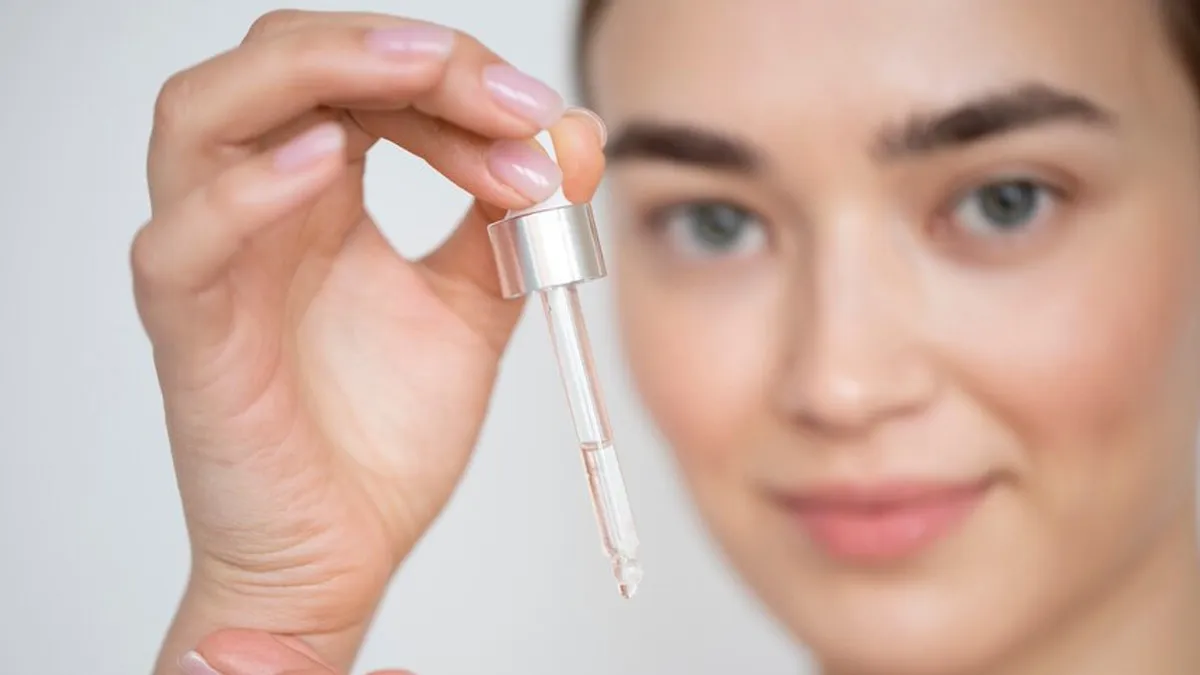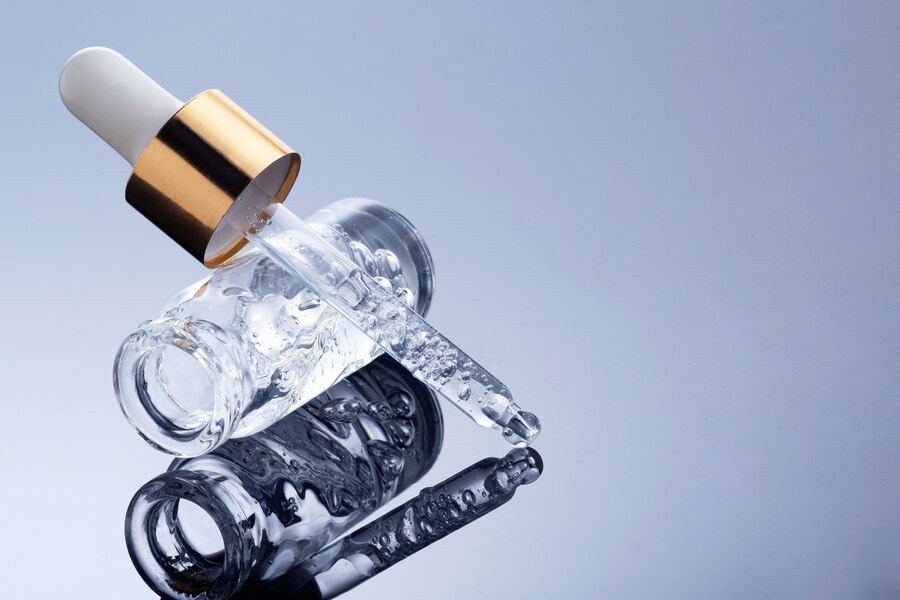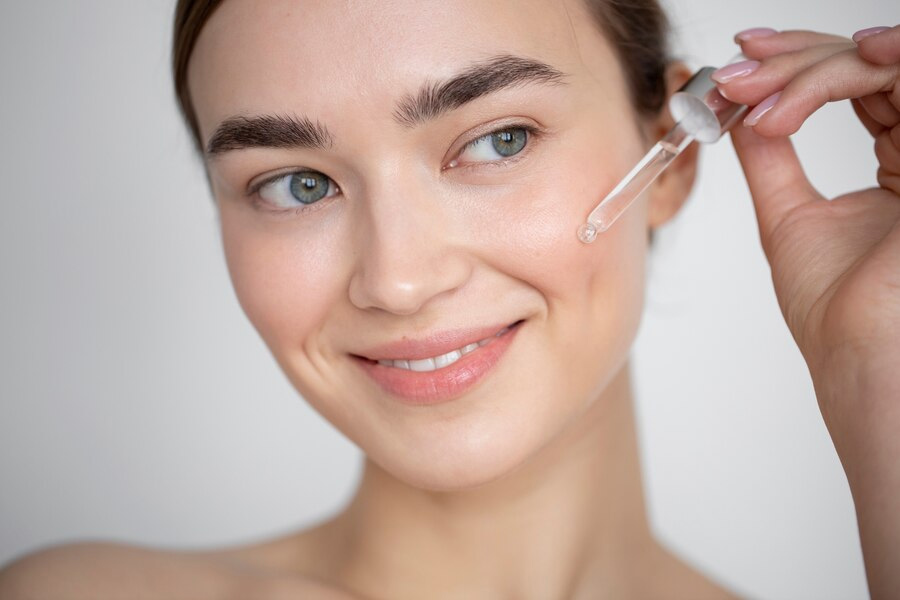
If you're even a little skincare-interested, chances are you've already caught wind of the niacinamide craze. But what is it, and is it worth all the fuss? Your chatgpt will give you a sure-short yes. However, that not everything you need to know about niacinamide. In an exclusive interaction with the editorial team of Onlymyhealth our expert, Dr Sanjeev Gulati, Department of Dermatology, Sharda Hospital - Noida, explained if your skin is missing out on this powerful ingredient in your skincare routine and things you need to know about niacinamide for skin. Here is what he shared with us.
Table of Content:-
What Is Niacinamide?
Niacinamide, also vitamin B3, is a water-soluble vitamin that collaborates with your skin to help visibly address enlarged pores, discolored skin, fine lines, and dullness. It can be found in many topical products such as serums, moisturisers, and even cleansers.
Skin Benefits of Niacinamide
Dr Gulati explained that unlike trendier ingredients that burst into flame and then fade away, niacinamide is scientifically backed, and appropriate for nearly all skin types, including sensitive or acne-prone skin. Here are a few benefits on applying it on the skin regularly:
1. Controls Oil Production
Dr Gulati highlighted that if you have combination or oily skin, niacinamide can balance sebum production without drying your skin, which is something even the most aggressive acne medications cannot accomplish.
2. Reduces the Size of Pores
By controlling oil and enhancing skin elasticity, niacinamide reduces the look of pores in the long term, leaving your skin smoother and more defined.
Also Read: Skincare Ingredients That Can Reduce Dark Spots On Your Face

3. Enhances Skin Barrier
Niacinamide is very good at fortifying your skin's own barrier, which keeps the moisture in and irritants and toxins out. This is particularly great for individuals with eczema or dryness conditions.
4. Enhances Hyperpigmentation
Research has proven that niacinamide can reduce brown spots and achieve more even-toned skin through regular use, most commonly without the redness found when using harsher ingredients such as hydroquinone.
5. Decreases Redness and Inflammation
Its anti-inflammatory effects make niacinamide perfect for soothing irritated skin and diminishing the redness of acne, rosacea, or sun damage.
How to Incorporate Niacinamide into Your Routine
Here are a few expert-approved ways to incorporate niacinamide into your daily skincare routine:
- Begin slowly, particularly if you're adding it to other active ingredients such as retinol or exfoliating acids.
- Morning or night: Niacinamide doesn't degrade in sunlight and complements sunscreen, so feel free to use it either time, or both.
- Layering tips: Use High and Tight after allowing it to sink into skin, allowing it to layer with products such as hyaluronic acid, peptides, and even vitamin C.
- Concentration to look for: 2–10% niacinamide is the concentration considered effective. Concentrations higher than that might be too harsh for sensitive skin.

Who Should Use Niacinamide ?
Dr Gulati emphasised that everyone can use niacinamide but its particularly more benefitial for those with:
- Acne and oily skin
- Large pores
- Hyperpigmentation
- Fine lines and early aging signs
- Dry or sensitive skin
"It's also fine for pregnant and breastfeeding women, unlike certain retinoids and acids, making it an ideal choice for expectant moms," Dr Gulati noted.
Possible Side Effects of Niacinamide
Niacinamide is usually tolerated well, but as with any skincare active, it's not ideal for everyone. A few side effects of using it may include:
- Mild irritation or flushing may occur, particularly when applied in high strengths or in combination with other strong actives.
- If you get tingling, redness, or acne, try reducing the strength or use frequency.
- Always patch test a new product prior to using it on your whole face.
Bottomline
Niacinamide is not just a trend, but a versatile, research-backed ingredient that offers real, visible results for a wide range of skin concerns. Whether you’re battling breakouts, uneven skin tone, or just want a healthier glow, this vitamin B3 derivative might be your new skincare staple. So next time you’re scanning an ingredient list, don’t overlook niacinamide.
Also watch this video
How we keep this article up to date:
We work with experts and keep a close eye on the latest in health and wellness. Whenever there is a new research or helpful information, we update our articles with accurate and useful advice.
Current Version
